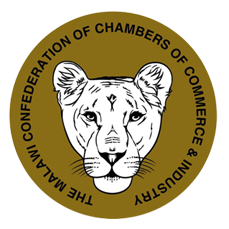- +265 (0) 999 970 950 / 951
- mccci@mccci.com
About Malawi
- Home
- About Malawi
About Malawi
Malawi is a land-locked country in south-eastern Africa, bordered by Mozambique, the United Republic of Tanzania and Zambia. It has a primarily agrarian economy, with 80 percent of the population living in the rural areas. The share of agriculture in GDP has dropped in the last decade from almost 40 percent in 2002 to around the average of 21 percent in recent years. Simultaneously, share of service (in GDP) has been rising to about 55 percent owing to reforms in the financial services sector, a boost in the telecom sector driven by a rise in mobile subscriptions and privatization of the transport sector. Additionally, the share of industrial activity (including mining) has been rising in recent years. Malawi’s position in the continent means it is reliant on transit corridors and ports in neighboring countries. The agricultural sector heavily dependent on rain-fed agriculture to maintain food security, Malawi is exceedingly vulnerable to climatic shocks.
The country offers a business environment with political stability, a market-oriented and liberalized economy, competitive labour markets, preferential access to several markets, an investor-friendly climate, improving infrastructure and untapped investment opportunities. The country also has streamlined investment establishment procedures such as a One-Stop Centre to assist investors. Further, the Malawi government has undertaken reforms to ensure that tax, labour, environment, health and safety laws continue to support foreign investment. In terms of ease of doing business, Malawi performs better than the African average (and better than 38 other African countries) when dealing with construction permits, wp-signup.phping new property, getting credit, protecting minority investors, paying taxes, trading across borders, enforcing contracts and resolving insolvency associated with new businesses according to the World Bank in 2020. Moreover, the government is keen to offer public–private partnerships to facilitate and promote strategic infrastructural investment through financial assistance, technical know-how, logistical support and operational management.
Within the basket of goods exported by Malawi, the top ten products comprised 70 percent of total goods exports in 2015, which rose tremendously to 82.5 percent in 2020. Of these, tobacco alone made up 47 percent on average of total exports in the period 2015–2020. Malawi is the fifth-largest exporter of burley tobacco and relies heavily on these exports to support its economy in terms of export earnings and employment generation. Exported variety is produced by small-scale farmers in small landholdings, and production remains dependent on the price of the preceding year. The second largest export is black tea, followed by cane sugar, which is produced chiefly for exports, nuts, peas, and soybeans. Malawi primarily exports to its regional partners in South Africa, Egypt, Zimbabwe, and Mozambique, as well as its extra-regional partners in the European Union (Belgium, Germany, and the Netherlands), the United States (US), and the United Kingdom (UK).
